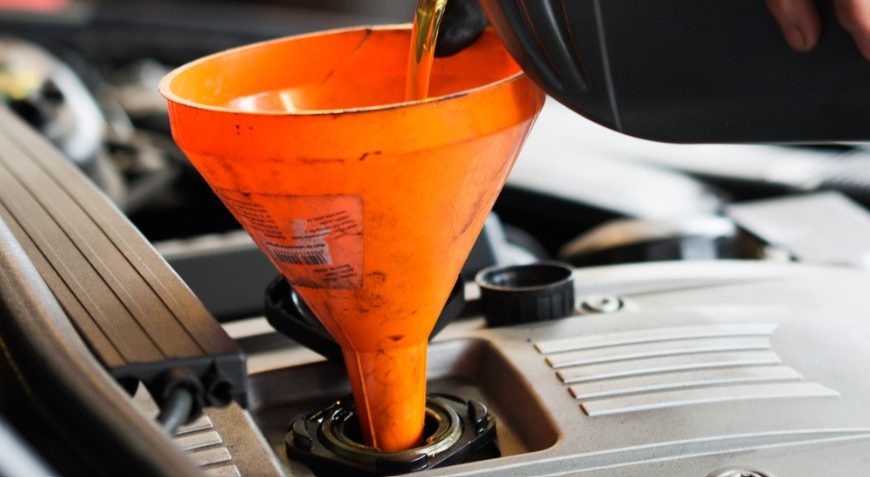- February 21, 2023
- By Nataly Hincapie
- In Auto Repair, Engine Repair
- 1638
- 0

Regular maintenance is critical to keep your vehicle in optimal condition and ensure its longevity. Vehicle maintenance not only prolongs the life of your car but also saves you from costly repairs down the road. In this comprehensive guide, we will cover everything you need to know about vehicle maintenance, from basic maintenance tasks to complex repairs.
Basic vehicle maintenance is essential for keeping your car running smoothly. Some of the basic tasks that you should perform regularly are:
Fluids play a crucial role in the proper functioning of your car. Regularly check your oil, brake fluid, coolant, power steering fluid, and transmission fluid levels. Low fluid levels can lead to serious problems and cause damage to your car’s engine.
Regular oil changes are essential to keep your car’s engine running smoothly. Oil lubricates the engine, reduces friction, and prevents wear and tear. Change your oil and oil filter every 3,000 to 5,000 miles or as recommended by your car’s manufacturer.
Your car’s tires play a critical role in your safety while driving. Regularly inspect your tires for wear and tear, check the tire pressure, and ensure that your tires are properly balanced and aligned.
Windshield wipers are essential for maintaining visibility while driving. Replace your windshield wipers every six months or when they start to show signs of wear and tear.
Intermediate vehicle maintenance includes tasks that are a bit more complex than basic maintenance. Some of the intermediate tasks that you should perform are:
The brake system is one of the most critical safety components of your car. Regularly inspect your brake pads, rotors, and brake lines to ensure that they are in good condition. If you notice any problems, take your car to a professional mechanic for repairs.
The battery is a crucial component of your car’s electrical system. Regularly inspect your battery for corrosion and ensure that it is securely fastened. If your battery is more than three years old, consider replacing it.
The air filter is responsible for filtering the air that enters your car’s engine. A dirty air filter can reduce your car’s fuel efficiency and cause damage to the engine. Replace your air filter every 12,000 to 15,000 miles or as recommended by your car’s manufacturer.
The engine coolant system is responsible for keeping your car’s engine from overheating. Over time, coolant can become contaminated, which can lead to engine problems. A coolant system flush can help keep your engine running smoothly.
Advanced vehicle maintenance tasks should be performed by a professional mechanic. Some of the advanced tasks are:
The transmission fluid plays a critical role in the proper functioning of your car’s transmission. A transmission fluid flush can help remove contaminants and ensure that your transmission is working correctly.
The timing belt is responsible for synchronizing the movement of the engine’s valves and pistons. A broken timing belt can cause significant engine damage. Replace your timing belt every 60,000 to 100,000 miles or as recommended by your car’s manufacturer.
The suspension system is responsible for ensuring a smooth ride and proper handling of your car. Regularly inspect your suspension system for wear and tear, and take your car to a professional mechanic for inspection.
In some cases, your car’s engine may require a complete rebuild. This is an advanced task that should only be performed by a professional mechanic. A complete engine rebuild involves disassembling and inspecting the engine, replacing worn-out parts, and reassembling the engine to factory specifications.
Regular maintenance is critical to keeping your car in good condition and ensuring its longevity. Here are some of the benefits of regular maintenance:
Regular maintenance helps ensure that your car is safe to drive. Checking your brakes, tires, and other safety components regularly can help prevent accidents and keep you and your passengers safe.
Regular maintenance can help prevent major problems from occurring. Catching issues early on can save you from costly repairs down the road.
Regular maintenance, such as changing your oil and air filter, can improve your car’s fuel efficiency. This can save you money on gas in the long run.
Regular maintenance can help prolong the life of your car. By taking care of your car and keeping it in good condition, you can avoid having to replace it prematurely.
Some basic maintenance tasks, such as checking your fluid levels and changing your oil, can be done by the average car owner. However, more complex tasks, such as engine rebuilds, should only be performed by a professional mechanic.
It’s important to know your limits when it comes to vehicle maintenance. If you’re not comfortable performing a certain task, it’s best to leave it to the professionals.
Vehicle maintenance is critical to keeping your car in good condition and ensuring its longevity. By performing regular maintenance tasks and catching issues early on, you can save yourself from costly repairs down the road. Remember to perform basic tasks regularly, seek professional help for intermediate and advanced tasks, and know your limits when it comes to DIY maintenance. By taking care of your car, you can enjoy a safe and reliable ride for years to come.































